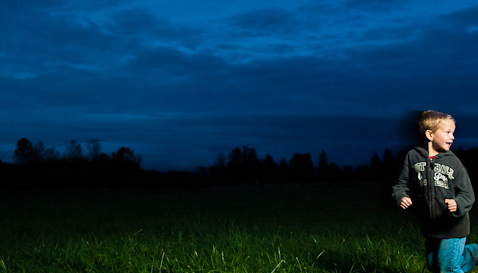Sometimes the religious observances of the Methodists were sought by us as opportunities for rude sport. One place was in particular a favourite resort of ours. About once a month, a number of the most gifted members of the Methodists’ society went over from Middleton (Lancashire) to hold a prayer meeting at the house of Samuel Hamer, in Grunsha Lane. Mr. Hamer was a small farmer possessing some little property; he and his wife had recently become converts to Methodism. That respectable and very loving couple, with their only child, a son, were constant attendants at the chapel at Middleton, and were as exemplary in their duties as they were zealous in the propagation of their new religion. Mrs. Hamer was a clever, talented, good-looking woman; one likely to be influential, for she had an uncommon ‘gift of prayer,’ and as the house in Grunsha Lane was in a district bordering on Tonge, Alkrington, and Chadderton, where ‘Satan had as yet many strongholds,’ these prayers were looked on as so many assaults on ‘the powers of the Prince of the Air.’ The leaders of the meeting generally assembled at Samuel Smith’s, who lived at the corner of Union Street, Middleton. There would perhaps be half-a-dozen of men, a woman or two, and a party of us lads. With coats buttoned up, lanthorns lighted, and sticks in hand, the men led the way, the women following, and the boys hovering sometimes before, sometimes behind. When, however, we were fairly in the fields, one of our party of lads would be missing; a whistle would be heard through the darkness, and loitering behind until the men and women were at a distance, we would set off as we could, helter-skelter, over hedge and ditch in quest of the whistler. This, especially on dark gusty nights, when we could scarcely hear each other’s voices, and often became lost for a time, was fine, exciting sport. A low yell, like that of a hound, would occasionally recall us to the pack, or to some comrade thrown out of the way like one’s self. Then there were particular places where one did not like to be quite alone, lest we fell in with company other than mortal. Such were Babylon Brow, going up to the heights of Tonge, and Tonge Wood, a thick dark plantation, and Tonge Springs, fairy-haunted, and its brook-bubbling sounds, like human words. On fine moonlight nights also, during the chase, things would be sometimes seen, and sounds heard, which one could not exactly make out; and as these added to the spirit of adventure, and were seldom of a decidedly terrific character, they served but to increase our excitement and relish of the pastime. When at the meeting, a hymn having been sung, and a prayer or two made, on a signal being given, we would slip out without exciting notice, and have another hunt over the fields and across the hedges, after which we returned, joined in the concluding devotions, and came home, our good guardians little dreaming of the sinful manner in which we had spent the holy Sabbath evening. On one of these night adventures I was certainly rather startled by what took place. My comrades had set out and left me behind, and in order to overtake them, I began to run, and had not run far, when I saw one before me running also, whom I seemed to be gaining ground upon fast. I soon made him out to be a lad of our party whom I knew I could easily outrun, and I chuckled at the idea of mortifying him by passing him at full speed, as I intended to do. When I got nearer I called out, but he still kept onward, making no answer. When close behind him I shouted, ‘Bill! Bill! why so fast?’ but there was no notice — no reply — which I thought rather strange, and when I came abreast of him, I said in a tone of defiance, ‘Come on, then, and see whot theawrt short of,’ and darting past him like an arrow, I turned my head with an air of triumph, and saw a face — not Bill’s, but that of one who had been dead many years. I now ran in earnest to get rid of him, but on looking back, saw he was within a few yards of my heels. He seemed almost to sweep the ground, whilst I passed the low fields betwixt Tonge Springs and Grunsha Lane, I know not how, but at an incredibly swift pace. In the lane he was still close behind me, and when I turned towards the door of the meeting-house, there was nothing to be seen or heard, save the tone of one in earnest prayer, and the frequent responses of ‘Amen, Amen.’ The lad whom I had set out to run against was inside on his knees, and I crept beside him and prayed more really in earnest that night than I had done during a long time before. I never mentioned the circumstance to my comrades lest I should get laughed at by them, or be seriously questioned and admonished by the elder Methodists if it came to their knowledge. Poor Bill was afterwards killed at Talavera; as good a specimen of dogged straight-forward John Bullism was he, as ever left England. Mr. Hamer died suddenly in the hayfield; his widow, on a rather short courtship, became the wife of our friend Samuel Smith; and her young son in process of time became a leading character amongst the Methodists, and is now, I believe, one of their travelling preachers (Bamford 1849, 126-129).

